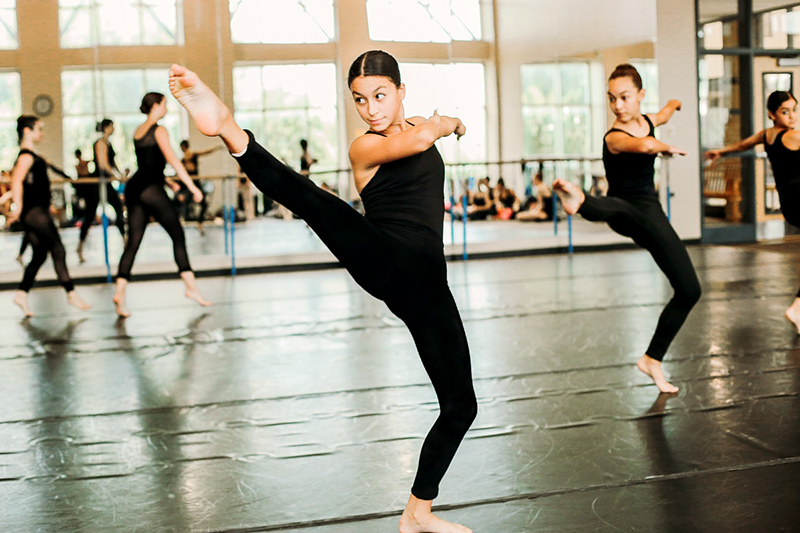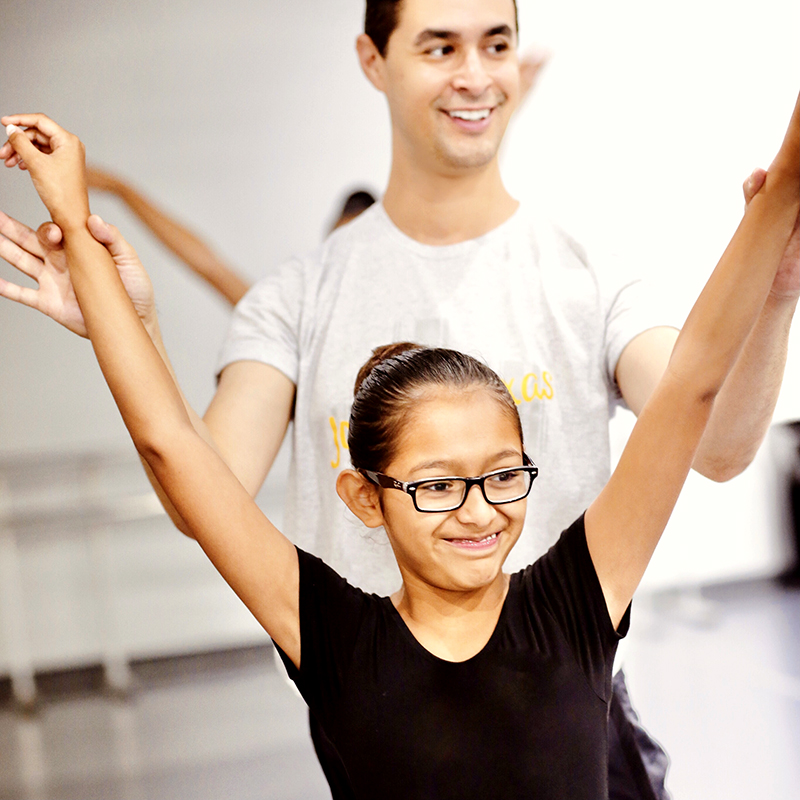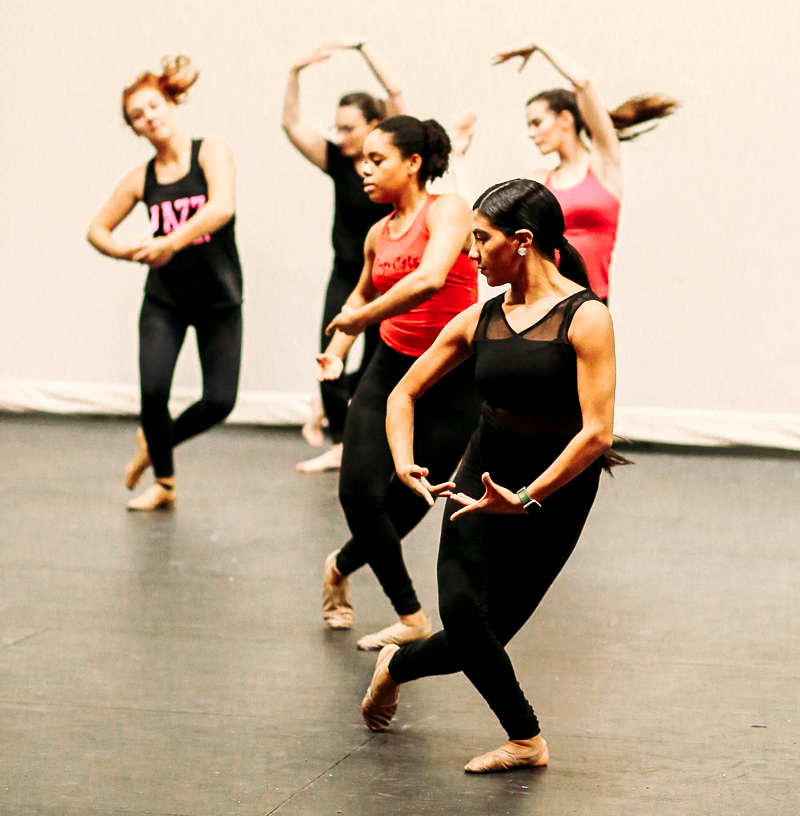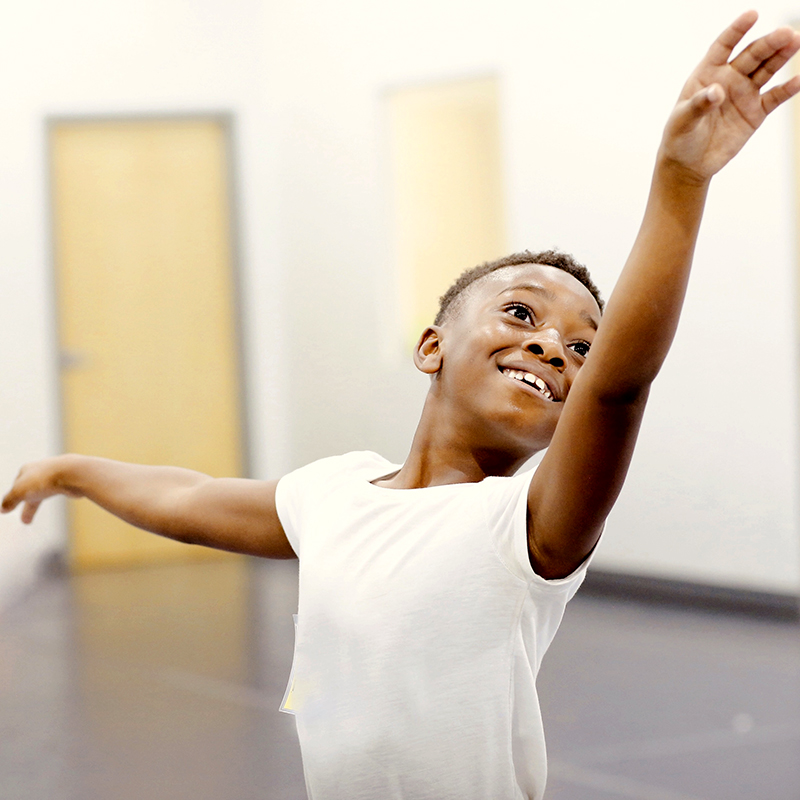Cultivating A Better Dance Training Environment
An Interview with Kenny Borchard at Joffrey Texas
BY EMMALY WIEDERHOLT; PHOTOS COURTESY JOFFREY TEXAS
Kenny Borchard is the co-director of Joffrey Texas along with his husband, Mauro Villanueva. They are also part of the team at Cultivating Better Tomorrows, an organization that provides diversity, equity, and inclusion training for the performing arts. Here, Kenny shares how Joffrey Texas is working to create an inclusive space for students of color and students who are gender nonconforming, as well as why it is important for dance spaces to empower students to go beyond replicating steps.
Joffrey Texas’ upcoming summer intensive begins Monday, July 5th and runs through July 30th. Classes will be offered both in-person and online.

~~
Can you tell me a little about your own dance history and how you came to be co-director of Joffrey Texas?
I started dancing at the age of nine at a competitive studio in southern California. At 15, I went to Idyllwild Arts Academy, and later I attended the University of Arizona. I danced professionally in Los Angeles and New York all while teaching at local studios. Mauro had a very different career; he grew up in Texas and studied ballet very intensely. He also went to an arts boarding school and then danced for the Joffrey Ballet for 13 years.
2017 was the first year we directed Joffrey Texas after the previous directors retired. At the time, I didn’t know how important creating brave spaces for dancers was to me. Now, years later, we are finally realizing those dreams.
What was the atmosphere of the program like when you and Mauro took over as directors?
Joffrey Texas was started by Robert Joffrey in 1978, and we still have teachers who taught here with him. Diane Orio and Trinette Singleton both danced for the Joffrey Ballet and they bring his legacy to the program through their classes.
Previously, ballet and modern were the main focus at Joffrey Texas. Because Mauro and I had very different careers, we have a lot of connections in the concert world as well as the commercial and musical theater worlds. We try to bring a variety of instructors to our program and hope the students are inspired by the multiple genres they get to study.

Can you tell me a little about Joffrey Texas’ current pedagogy and guiding practices?
We started crafting an experience for our students by looking at who we are bringing on as instructors and what their values are. How do they teach? Are they teaching in an impactful way and not in a demeaning way? One of the things we say in our work at Cultivating Better Tomorrows is that we want to break the cycle of trauma as tradition. There are many ingrained ideas in the structures of dance that don’t necessarily need to be there. For example, can a man take pointe class? Yes. And can a woman take men’s class? Yes.
What are some ways Joffrey Texas focuses on representation?
We have committed to having at least 50 percent BIPOC, women, and gender nonconforming teachers. When young Black dancers sees a Black ballerina or Rockette, they understand that they can be those things. We also partnered with Brown Girls Do Ballet for our most recent spring intensive. Interestingly, a majority of our past student body did not attend. Change takes time; it’s going to take time to blend our past student body with what we hope to be our new student body, which is more diverse. We think the summer intensive will be another step in bringing dancers together.
Can you share a little about the thought that went into creating Joffrey Texas’ dress code to make BIPOC and gender nonconforming students feel welcome?
In her previous position, Erica Lynette Edwards (the founder of Cultivating Better Tomorrows) instituted tights that matched the students’ skin color, and through discussions with her we started thinking: By requiring pink tights are we leaving somebody out? What other parts of the dress code are leaving people out? That’s where the gender nonconforming part came in. It’s my hope that in five years we are known as the place where gender nonconforming and trans students come to dance and that they feel welcome and honored.
Joffrey Texas makes its classes available both in-person and online. Can you share the thought behind that decision?
Before the pandemic, very few people were using video and Zoom for classes. They thought it didn’t work and wasn’t engaging. This year has proven that wrong for us. We’ve had students from as far as Nigeria and Malaysia. It’s a point of access that wasn’t there before. We use Core to Coeur, a virtual wellness-based platform, and all of our summer intensive online classes use a sliding pay scale. As we get back to “normal” we believe all online classes could be offered on a sliding pay scale.
Also, there’s not extensive dance education in some areas, and if there is, it may not be what an individual needs. Online learning allows some students to feel more comfortable by removing the overstimulating studio environment and the concern for what other people are thinking. It’s also an opportunity for students to become more familiar with their bodies in a comfortable space so they can go beyond replicating steps to actually feeling the steps in the body.
What do you want your students to get from Joffrey Texas’ intensives?
I’m very interested in teaching/challenging students to recognize how they feel when they are moving. To be in a space that is encouraging when it comes to exploring your technique and your relationship with the world is to be in a place where change-makers and artists are grown.

Is there anything upcoming you want to specifically promote or draw attention to?
Our summer intensive guest faculty (in-person and virtual) have graced some of the biggest stages in the world. They include a backup dancer/singer for Taylor Swift (Eliotte Nicole), a Radio City Rockette (Mindy Moeller), Dance Theater of Harlem/Complexions Dancer (Christina Johnson), multiple Broadway artists, Joffrey Ballet dancers, and others. We are really excited about our faculty.
For in-person classes, students can sign up for our summer intensive on a week-to-week basis. Virtual students can sign up the minute before class begins.
Any other thoughts?
We understand that to get to our goal it will be a long journey. It’s going to take time to get people on board. Challenging any structure is hard. It requires change, and change is uncomfortable. When things have worked one way for so long, people wonder why they have to change… because more people should feel included in dance spaces, and that inclusion brings value to the space.

~~
To learn more about Joffrey Texas, visit joffreytexas.com.
To learn more about Cultivating Better Tomorrows, visit cultivatingbettertomorrows.org.

One Response to “Cultivating A Better Dance Training Environment”
Mauro,loved the article. Many memories of you. Yvonne,Alyssa and Theresa. Cannot wait to get back in to arts again and Portland Ballet. If ever in Portland.look us up. Blessing for a great summer. Trish Kreger
Comments are closed.